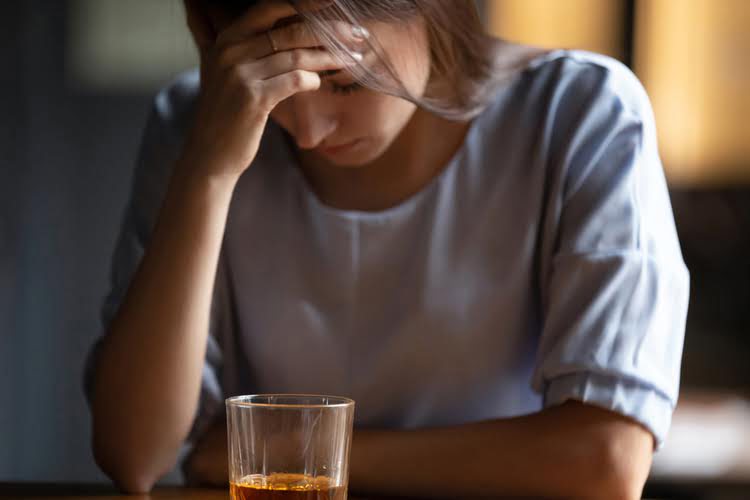What Vitamins Should I Take if I Bruise Easily?
Plus, intoxication dulls pain perception so https://ecosoberhouse.com/ you might not notice minor injuries immediately. By the time you realize something happened, a bruise may have already formed extensively beneath the skin’s surface. Alcohol can lead to problems such as fatty liver, hepatitis and cirrhosis. This can develop into alcohol hepatitis, which is the inflammation of the liver.
Q1: Can drinking alcohol cause broken blood vessels?
Your judgment and decision-making skills will be affected fairly quickly when you start drinking. This is because it affects the prefrontal cortex, which is the part of the brain that controls reasoning and higher brain function. Since alcohol also lowers your inhibitions, you may be more likely to try something that you normally wouldn’t do, including potentially dangerous physical activities. This is also why people may be willing to get behind the wheel of a car while they’re drunk. A single bruise on your skin is often a symptom of a minor injury.
Focusing All Attention On Drinking
If you use blood thinners or anti-inflammatory medicines, you should be aware that these medications may increase your risk of skin injury, such as bruising and bleeding. The combination can worsen the symptoms and raise the probability of bruising or other types of injury. While bruising after drinking may seem a rather minor nuisance, the human body must be paid some attention. Repeated and intense bruises, combined with other symptoms, might be indicative of a problem that needs some medical attention. So through responsible drinking, keeping the body hydrated, and with the most importance on health, bruising can be reduced as well, and healthier lifestyles can be enjoyed. Platelets are important for the coagulation of blood and heavy drinking impairs the generation as well as function of these platelets.
Common physical signs of alcoholism
This effect may explain why you’re waking up with bruises after drinking. Alcohol and unexplained bruising could point to liver damage from drinking. Easy bruising and bleeding are signs of cirrhosis, which is a serious liver disorder.
- And when the blood vessels underneath your skin break, it causes blood to leak out.
- Bruises on your belly, back, or face with no obvious cause, or many new bruises, are reasons to see your doctor.
- EDS is typically diagnosed at birth or in early childhood, however, it is possible to develop symptoms as a young adult.
- This means even minor bumps or injuries can cause more significant bleeding under the skin, resulting in larger or darker bruises.
Since the liver produces many proteins essential for blood clotting, any damage or strain on it reduces clotting factors. Chronic drinking can lead to liver diseases like cirrhosis that drastically elevate bleeding risks. Earlier, we discussed how alcohol impairs liver function, which can result in bruising easily. However, there are several other factors that can cause liver disease, such as cancer and cirrhosis. Liver disease affects the blood clotting process, increasing your risk of bleeding and bruising easily.
- A deficiency in vitamin K can lead to prolonged bleeding and increased bruising.
- This can affect the body’s ability to repair tissues and form blood clots properly.
- Furthermore, alcohol can impair judgment and coordination, increasing the risk of falls and injuries that result in bruising.
It can be caused by wearing old or worn-out shoes while you train, running or walking on hard surfaces like concrete, or training for too long. You can help speed your recovery if you use a cushion or gel doughnut when you sit down because this takes the pressure off your tailbone. Going to the bathroom can be painful, so make sure you eat plenty of fiber and drink plenty of fluids to avoid a bout of constipation. If necessary, your doctor can pierce your nail to drain the blood and fluid built up underneath. Don’t do this yourself because you do alcoholics bruise easily could hurt yourself further, cause an infection, and slow your healing process. It’s not likely, but it’s possible that your bruises are a sign of blood cancer, such as leukemia.
Do You Bleed More When You Drink?
Beyond clinical practice, he’s an advocate for community awareness and early intervention in addiction prevention. Outside work, Trent values family time, personal growth, travel, and promoting a healthy lifestyle. So when you drink alcohol and injure yourself, you can be left with a bigger, more noticeable bruise than you might see while sober. Alcohol can change circuitry in the brain, and those changes can make it difficult for you to curb an alcohol habit.

But a liver that is damaged needs a perfectly pure environment to heal, and that means alcohol at any level must be eliminated. Every sip does another tiny bit of damage and impairs healing, and that can lead to more bruising. According to the National Kidney Foundation, heavy drinking for women involves having more than three drinks in one day or more than seven drinks per week. Heavy drinking for men involves more than four drinks in one day or more than 14 drinks per week. As a result, you may be more likely to smack your knuckle on the knob and wake up with a bruised hand the next day.
When it comes to drinking alcohol, several factors can increase the risk of bruising. Drinking can hinder the body’s capacity to clot blood, making bruising more likely. Second, alcohol dehydrates the body, making skin more delicate and prone to bruising. Finally, excessive alcohol consumption can result in falls or other accidents that result in bruises. It helps activate proteins that stop bleeding and repair damaged blood vessels. A deficiency drug addiction in vitamin K can lead to prolonged bleeding and increased bruising.

Platelet Disorders

The clot plugs the broken blood vessel and stops it from bleeding. There are many facial signs of alcoholism, but one of the most common signs is redness in your face. By this stage, their drinking is taking an obvious physical toll as well. Mood swings, depression and feelings of guilt and shame are common.
Factors such as alcohol’s blood-thinning effects, impaired coordination, and liver damage can increase the risk of bruising. It is important to consume alcohol in moderation and take necessary precautions to prevent accidents or falls to minimize the risk of bruising. If you have concerns about alcohol-related bruising or experience frequent bruising, consult a healthcare professional for further evaluation and guidance. While occasional moderate drinking may not lead to dramatic changes in bruise patterns for most people, chronic heavy drinking almost certainly does. Yes, alcohol reduces your blood’s ability to clot by impairing platelet production and liver function.
